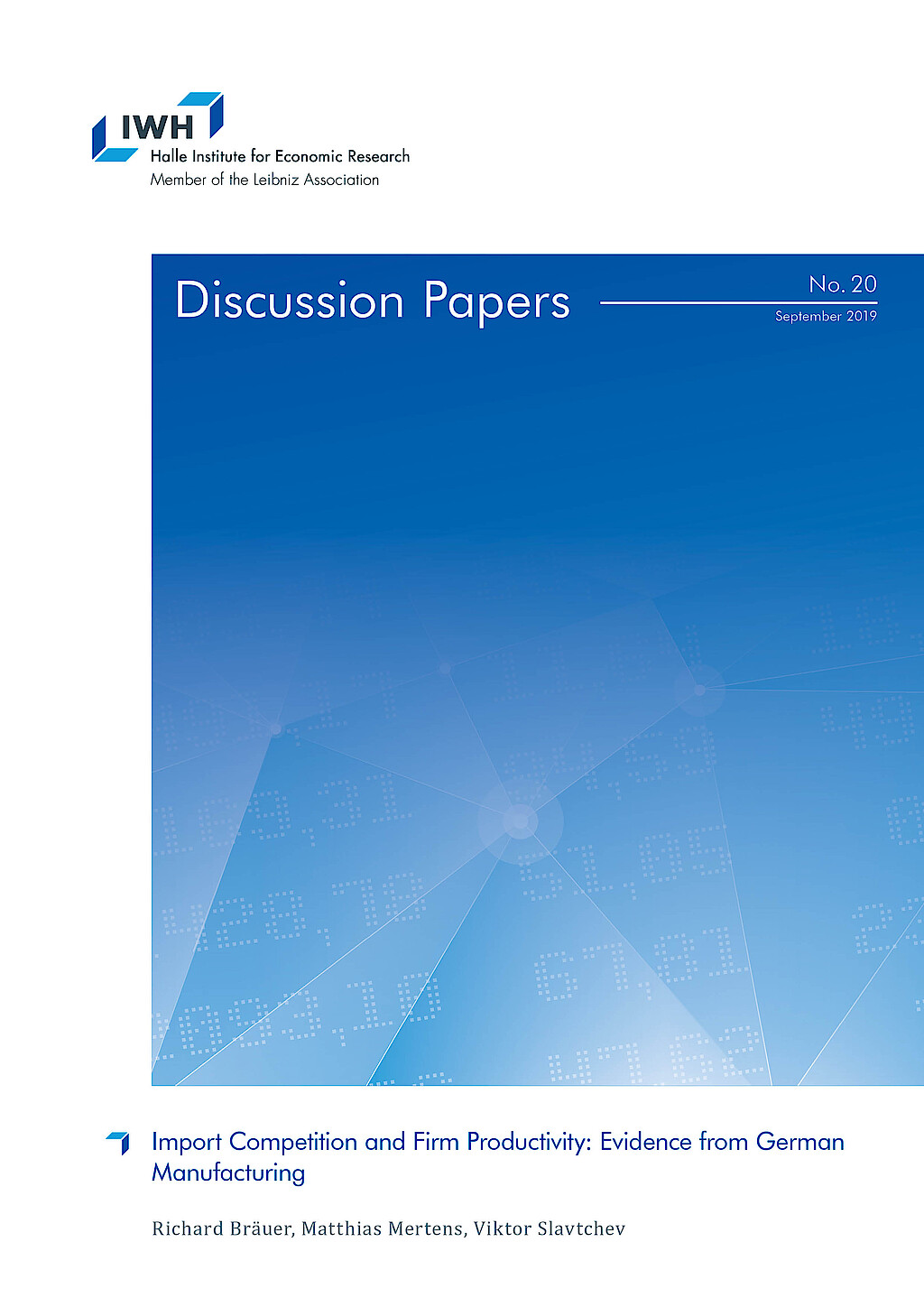
Import Competition and Firm Productivity: Evidence from German Manufacturing
This study analyses empirically the effects of import competition on firm productivity (TFPQ) using administrative firm-level panel data from German manufacturing. We find that only import competition from high-income countries is associated with positive incentives for firms to invest in productivity improvement, whereas import competition from middle- and low-income countries is not. To rationalise these findings, we further look at the characteristics of imports from the two types of countries and the effects on R&D, employment and sales. We provide evidence that imports from high-income countries are relatively capital-intensive and technologically more sophisticated goods, at which German firms tend to be relatively good. Costly investment in productivity appears feasible reaction to such type of competition and we find no evidence for downscaling. Imports from middle- and low-wage countries are relatively labour-intensive and technologically less sophisticated goods, at which German firms tend to generally be at disadvantage. In this case, there are no incentives to invest in innovation and productivity and firms tend to decline in sales and employment.





